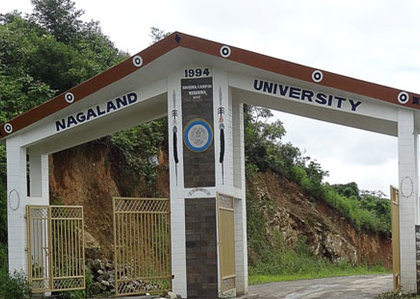Nagaland University’s biodegradable gelatin-electrolyte to boost performance of supercapacitors
By IANS | Updated: November 3, 2025 17:45 IST2025-11-03T17:43:55+5:302025-11-03T17:45:25+5:30
Kohima, Nov 3 A research team from Nagaland University has developed a novel eco-friendly gelatin-based hydrogel membrane electrolyte ...

Nagaland University’s biodegradable gelatin-electrolyte to boost performance of supercapacitors
Kohima, Nov 3 A research team from Nagaland University has developed a novel eco-friendly gelatin-based hydrogel membrane electrolyte that provides a safe, flexible, and biodegradable alternative to conventional electrolytes used in supercapacitors.
Supercapacitors are fast-charging, high-output energy storage devices used in everything from electric vehicles to emergency medical equipment.
The research, published in the journal Materials Today Chemistry, could pave the way for cleaner, more sustainable energy solutions. It holds the potential to have a great impact on sustainable energy storage, particularly in devices such as electric vehicles, medical wearables, and portable electronics.
Traditional energy storage systems often use liquid electrolytes that can leak, corrode components, and cause environmental damage.
To address these challenges, the research team created a ‘KI-doped glyoxal-crosslinked gelatin hydrogel membrane electrolyte’ (GNHME).
The innovative material combines gelatin -- a naturally biodegradable protein -- with glyoxal, a crosslinking agent that enhances mechanical flexibility, and potassium iodide (KI), a redox-active dopant that boosts ionic conductivity and capacitance.
According to the team, the result is a semi-transparent, flexible hydrogel that safely conducts ions and maintains stability over thousands of charge-discharge cycles, making it ideal for next-generation solid-state supercapacitors.
Elaborating on this research, Dr. Nurul Alam Choudhury, Assistant Professor, Department of Chemistry, Nagaland University, said that the development of biodegradable, redox-active solid electrolytes mark an important step toward realising eco-friendly, high-performance energy storage systems compatible with renewable energy integration.
“This technology could play a key role in electric mobility and green energy applications, aligning with India’s sustainable development goals,” he pointed out.
Unlike conventional liquid electrolytes, this quasi-solid hydrogel is biodegradable, leak-proof, and exhibits exceptional electrochemical performance.
The gelatin/glyoxal covalent hydrogel is a superabsorbent that absorbs water to the extent of 717 per cent. The incorporation of KI significantly improves the energy and power densities of supercapacitors, while the use of glyoxal provides excellent flexibility and resilience compared to other crosslinking agents.
Disclaimer: This post has been auto-published from an agency feed without any modifications to the text and has not been reviewed by an editor
Open in app